The Best Doctor Who Episodes Of The David Tennant Era
Count the shadows if you want to live.
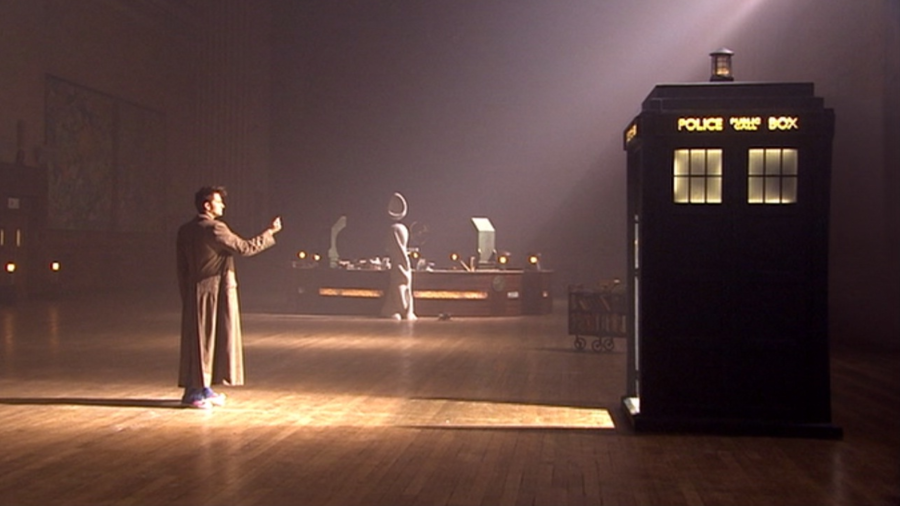
Beset by controversy and built on scripts focusing on hot-button political topics. Doctor Who has now been abandoned by many of the show’s most ardent fans. Ratings have dipped so far that the show is lucky if it avoids cancelation.
It wasn’t always that way. There was a time when Doctor Who was regarded as some of the best written science fiction on television and recorded massive ratings. Many claim decline began with the end of the Matt Smith era. I don’t know if that’s true, but it’s certain that the franchise peaked in the David Tennant era.
Let’s remember the good times. These are the best Doctor Who episodes of the David Tennant era. The best Doctor Who episodes featuring the tenth Doctor.
Silence in the Library / Forest of the Dead | Season 4 Episode 8
Written by Steven Moffat
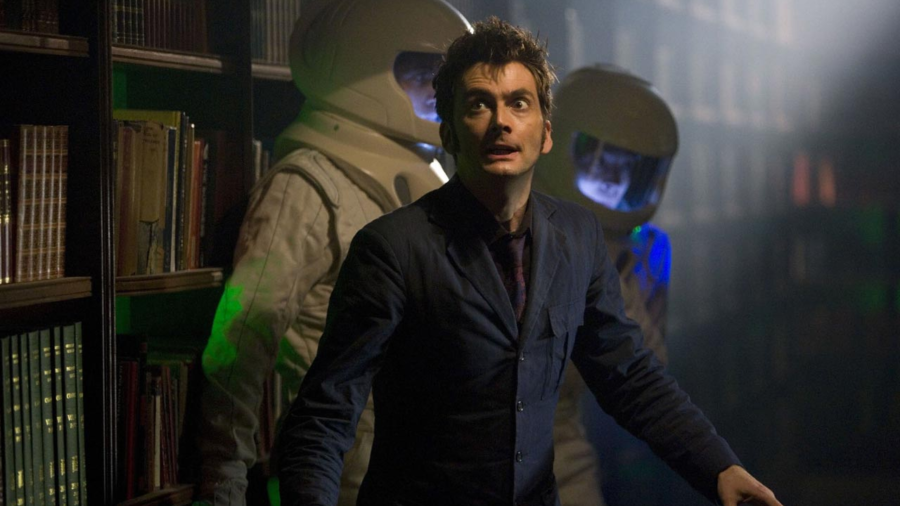
Often the best Doctor Who stories are the simplest ones, but it’s the way in which this two-parter, written by Steven Moffat, weaves together so many different elements that ultimately creates something so terrifying and emotionally gut-wrenching.
“Silence in the Library” begins in an abandoned, planet-size library where the tenth Doctor (David Tennant) and his companion Donna Noble (Catherine Tate) encounter a group of would-be explorers. They’re led by a woman who seems to be from the Doctor’s not-yet future… and they’re all doomed.
The library may seem abandoned, but the shadows hold secret terror that possesses the bodies of anyone who ventures into them and kills them. Count the shadows if you want to live.
But death isn’t the end for their victims. Thanks to a transponder built into the explorer’s suits, their consciousness lives on a few moments after their body is already gone. As their dead, possessed bodies lurch through the hallways on the attack, the voices of the already gone cry out in confusion and darkness from them.
Each complication adds a new layer of horror to the story as the Doctor loses his friends and races to stay in the light. The library is alive. Donna Noble has been saved.
Blink | Season 3 Episode 10
Written by Steven Moffat
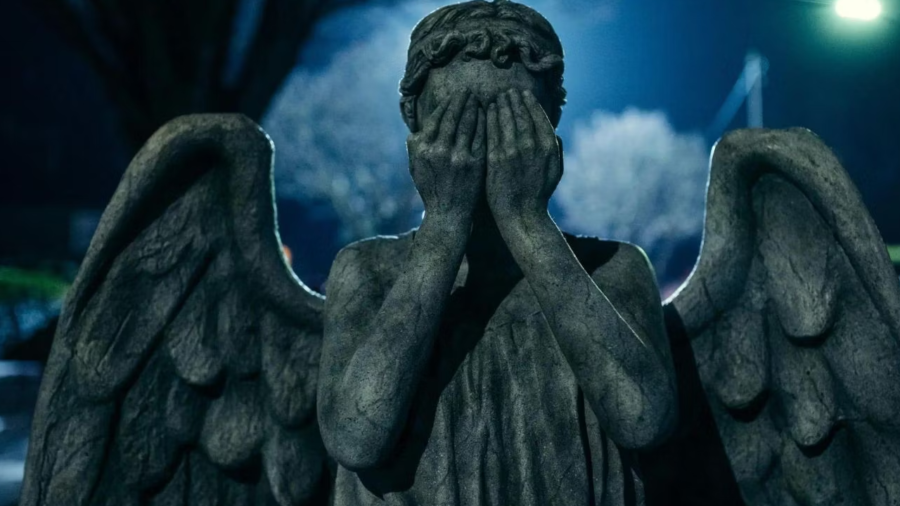
The Weeping Angels stand shoulder to shoulder with iconic Who menaces such as the Cybermen and the Daleks. Unlike those two, however, the Angels are genuinely terrifying.
Stone angels that can only move when they’re not being observed; they’re the flicker of movement out of the corner of your eye, the shape you’d swear was on the other side of the room a moment before. The fact that we never actually see them in motion makes them far more frightening, and that’s strengthened by the fact that they prey upon something we do constantly and without thinking about it: blinking.
Even better, “Blink” surrounds the menace of the Angels with a twisty-turn-y storyline that has the tenth Doctor (David Tennant) stranded in the past and having to send a message forward through the decades via an Easter Egg hidden on thousands of DVDs. This idea reaches its brilliant apex in a scene where The Doctor — in 1969 – uses the DVD video to carry out a conversation with a woman in 2007 who is writing the conversation down so The Doctor will eventually know what to say when he first records it in 1969.
It makes your head spin, but it’s the sort of non-linear thinking that makes Doctor Who so much fun. It’s no accident that “Blink” introduced us to The Doctor’s description of time as “a big ball of wibbly-wobbly, time-y wimey stuff.”
The Girl in the Fireplace | Season 2 Episode 4
Written by Steven Moffat
While exploring a derelict 51st-century starship, the tenth Doctor and Rose (Billie Piper) discover “time windows” linked to 18th-century France. One leads to a fireplace in the room of Reinette (Sophia Myles), a young girl who will grow up to be Madame de Pompadour, and who is currently being menaced by clockwork robots.
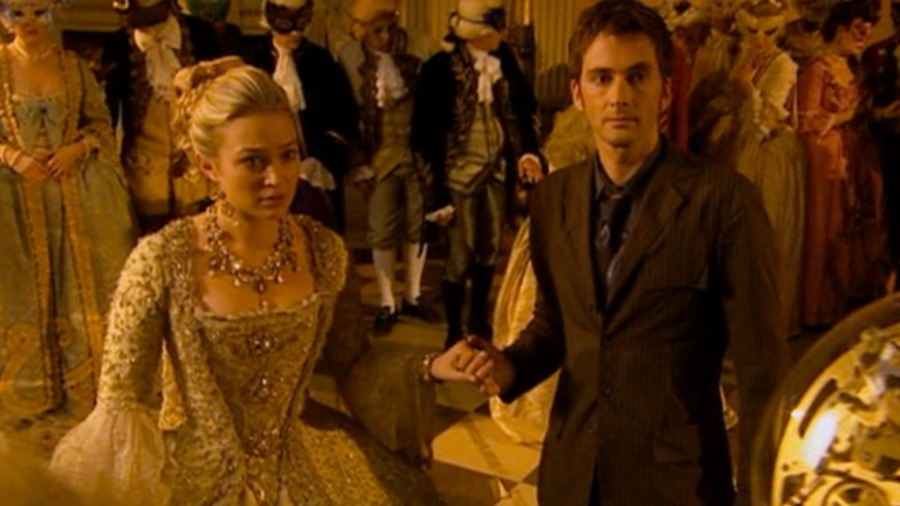
After saving the day, The Doctor learns the windows are not anchored on both ends. Back on the ship, time is passing normally, but each time he passes through the window years will have passed for the girl in the fireplace. As The Doctor races back and forth to discover what the robots want, young Reinette grows into an adult… and beyond.
Working from a simple conceit, “The Girl in the Fireplace” becomes one of Doctor Who‘s most emotionally powerful episodes. In the relationship between The Doctor and Reinette, writer Steven Moffat shows us the tragedy of a time lord’s immortality: that every friend he makes, every relationship he forges, will pass away, over and over, while he simply… continues.
While The Doctor’s relationship with Reinette occupies only a tiny sliver of his lifetime, their relationship is nevertheless powerful and emblematic of the one enemy The Doctor can never defeat: loneliness.
Midnight | Season 4 Episode 10
Written by Russell T. Davies
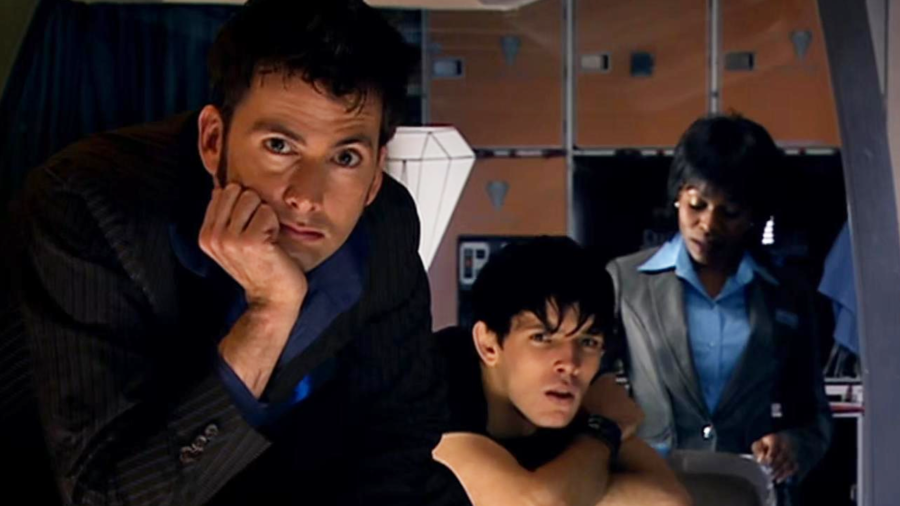
In “Midnight” the tenth Doctor (David Tennant) sets off sightseeing without his companion and ends up stranded in a broken-down shuttle bus with a group of tourists. The driver claims it’s an engine problem and radios for help, but as they wait, something starts pounding on the hull. Then it gets inside.
It’s not just inside the ship, but in one of the passengers, and when The Doctor tries to talk to her, she appears only to be able to repeat the words the other passengers are saying. Except maybe she’s doing more than repeating. Maybe she’s stealing, stealing their voices away.
The passengers begin to turn on each other, suspecting the Doctor and struggling to hang on until help arrives. It’s not until it’s over that we’re ever entirely certain whether the real danger to these people is from the creature or each other.
Putting The Doctor out there without a companion and in an environment where he’s surrounded by people who fear and mistrust him creates a situation the Time Lord rarely encounters. Tennant is, of course, brilliant, and the script goes places you’ve rarely seen in any other trapped-in-small-spaces scenario. In the end, it’s not even the Doctor who plays the hero, but a hostess without a name.












